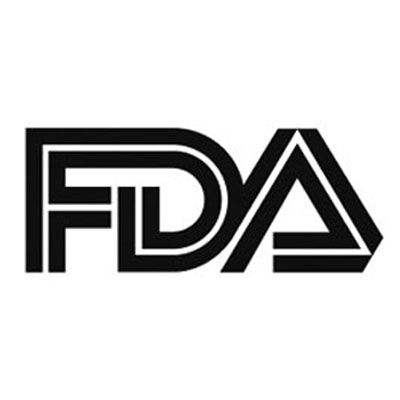A Pegfilgrastim Biosimilar Has Received Approval from the FDA
The FDA granted approval to pegfilgrastim-apgf, a biosimilar of pegfilgrastim, which is indicated to decrease the incidence of infection due to febrile neutropenia in patients with non-myeloid malignancies who are receiving myelosuppressive anti-cancer agents associated with a clinically significant incidence of febrile neutropenia.

The FDA has granted approval to pegfilgrastim-apgf (Nyvepria), a biosimilar of pegfilgrastim (Neulasta), which is indicated to decrease the incidence of infection due to febrile neutropenia in patients with non-myeloid malignancies who are receiving myelosuppressive anti-cancer agents associated with a clinically significant incidence of febrile neutropenia, announced Pfizer.
“Chemotherapy-induced febrile neutropenia is a relatively common and severe side effect of some cancer treatments that could cause significant complications and can result in the alteration of treatment regimens,” said Ali McBride, PharmD, MS, BCPS, BCOP, immediate past president of the Association of Community Cancer Centers (ACCC), in a press release. “The FDA approval of Nyvepria provides clinicians with an additional long-acting treatment option that can help prevent infections in patients undergoing myelosuppressive chemotherapy.”
The decision for this approval was based on a review of a comprehensive data package and totality of evidence that demonstrated a high degree of similarity between pegfilgrastim-apgf and reference pegfilgrastim. This approved biosimilar will aid in reducing the chance of infection due to a low white blood cell count in patients with non-myeloid cancer who are receiving anti-cancer treatments, such as chemotherapy, which can cause fever and low white blood cell counts. Febrile neutropenia is a common adverse effect of many chemotherapy agents and is known to lower the body’s ability to defend itself against infections.
This biosimilar is not indicated for the mobilization of peripheral blood progenitor cells for hematopoietic stem cell transplant. It also has a contraindication for patients with a history of serious allergic reactions to pegfilgrastim or related products. The contraindication also notes reactions have included anaphylaxis.
Splenic ruptures may occur with the administration of pegfilgrastim or related products, which can be fatal. Patients who report left upper abdominal or shoulder pain after receiving the biosimilar should be evaluated for splenic rupture or an enlarged spleen.
Acute respiratory distress syndrome (ARDS) may also occur. Patients who develop a fever, lung infiltrates, or respiratory distress should be evaluated, and treatment of the biosimilar or pegfilgrastim-related products should be discontinued for patients who develop ARDS.
Physicians should also monitor patients for serious allergic reactions, such as anaphylaxis, but the majority of these reactions will occur upon initial exposure to the pegfilgrastim product. Allergic reactions can recur within days after discontinuation of initial anti-allergic treatment, and the agent may need to be permanently discontinued in those with serious allergic reactions.
Other limitations to use of this biosimilar include glomerulonephritis, leukocytosis, capillary leak syndrome, tumor growth stimulatory effects on malignant cells, and aortitis. The most common adverse reactions are bone pain and pain in extremity. In patients with sickle cell disorders, sickle cell crises can be severe or sometimes fatal, and treatment should be discontinued if this event occurs.
Biosimilars are important in the treatment of patients with cancer and as supportive care, as these agents have the ability to increase patient access to essential medications as well as provide value to the healthcare system by driving market competition that can lower the cost of patient care.
Pfizer also filed this biosimilar for regulatory approval with the European Medicine Agency, and the application remains under review at this time.
“The FDA approval of NYVEPRIA is a positive step that could both enable cost savings and increase access to an important treatment option,” stated Andy Schmeltz, global president, Pfizer Oncology. “We are proud to add this new, long-acting supportive care option to our robust portfolio, now with 6 FDA-approved oncology biosimilars including three specifically approved for supportive care for patients with cancer. We look forward to making Nyvepria available to US patients and physicians later this year.”
Reference
FDA approves Pfizer’s oncology supportive care biosimilar, nyvepria (pegfilgrastim-apgf). News Release. Pfizer Inc. June 11, 2020. Accessed June 11, 2020. https://bit.ly/3dVdeZD